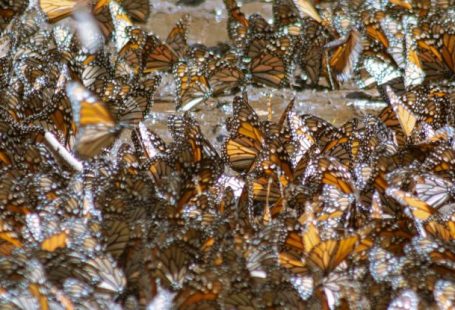Gardening enthusiasts know the frustration of spending time and effort tending to their plants, only to have them fall victim to pesky garden pests. These unwelcome visitors can wreak havoc on your carefully nurtured garden, causing damage to your plants and disrupting the ecosystem you’ve worked hard to create. While chemical pesticides may seem like a quick fix, they can harm beneficial insects and wildlife, as well as pose risks to human health. Fortunately, there are organic solutions that can help you manage common garden pests effectively without resorting to harmful chemicals.
Identifying Common Garden Pests
Before diving into organic solutions, it’s essential to identify the common garden pests that may be plaguing your plants. Some of the most common garden pests include aphids, caterpillars, slugs, snails, and beetles. Each type of pest can cause specific damage to your plants, so being able to identify them accurately is the first step towards effective pest management.
Natural Predators
One of the most effective ways to control garden pests organically is by introducing natural predators into your garden. Ladybugs, lacewings, parasitic wasps, and predatory beetles are all beneficial insects that can help keep pest populations in check. Ladybugs, for example, feed on aphids, while parasitic wasps lay their eggs inside caterpillars, effectively reducing their numbers. By attracting and supporting these natural predators, you can create a balanced ecosystem in your garden that helps control pest populations naturally.
Companion Planting
Companion planting is another organic method that can help deter common garden pests. By planting certain flowers, herbs, and vegetables together, you can confuse pests, repel them, or attract beneficial insects that prey on them. For example, planting marigolds alongside your tomatoes can help repel nematodes, while growing basil near your peppers can deter aphids. Researching which plants work well together and experimenting with companion planting can help you create a pest-resistant garden that thrives without the need for chemical interventions.
Neem Oil
Neem oil is a natural pesticide derived from the seeds of the neem tree. It acts as a repellent, insecticide, and fungicide, making it a versatile tool for managing garden pests. Neem oil works by disrupting the feeding and reproductive cycles of pests, such as aphids, mites, and whiteflies, without harming beneficial insects. To use neem oil, dilute it in water according to the instructions on the product label and spray it on your plants regularly to deter pests and prevent infestations.
Diatomaceous Earth
Diatomaceous earth is a natural, abrasive powder made from the fossilized remains of diatoms. It works by dehydrating soft-bodied insects, such as slugs, snails, and beetles, causing them to die. Diatomaceous earth is safe to use around plants and pets but should be applied carefully to avoid inhalation. Sprinkle a thin layer of diatomaceous earth around the base of your plants or directly on pests to create a barrier that deters them from feeding on your garden.
Homemade Remedies
If you prefer DIY solutions, there are several homemade remedies that can help control garden pests organically. Garlic and chili pepper spray, for example, can be made by blending garlic cloves and chili peppers with water and straining the mixture into a spray bottle. This natural insect repellent can be sprayed on plants to deter pests like aphids and caterpillars. Additionally, a mixture of soap and water can suffocate soft-bodied insects on contact, making it an effective homemade pesticide for managing garden pests.
Encouraging Biodiversity
Creating a diverse and balanced ecosystem in your garden is key to preventing pest infestations. By planting a variety of flowers, herbs, and vegetables, you can attract beneficial insects, birds, and other wildlife that help control pest populations naturally. Providing habitats such as birdhouses, bee hotels, and insect hotels can also encourage biodiversity in your garden and support the predators that keep pests in check. By fostering a thriving ecosystem, you can reduce the likelihood of pest outbreaks and create a sustainable and healthy environment for your plants to flourish.
In conclusion,
Organic solutions to common garden pests offer a safe and effective alternative to chemical pesticides. By identifying pests, attracting natural predators, practicing companion planting, using neem oil and diatomaceous earth, trying homemade remedies, and encouraging biodiversity, you can manage garden pests without harming the environment or risking your health. Embracing these organic methods not only protects your plants but also promotes a harmonious relationship between nature and your garden. With a little creativity and dedication, you can create a pest-resistant garden that thrives naturally and brings you joy throughout the growing season.





